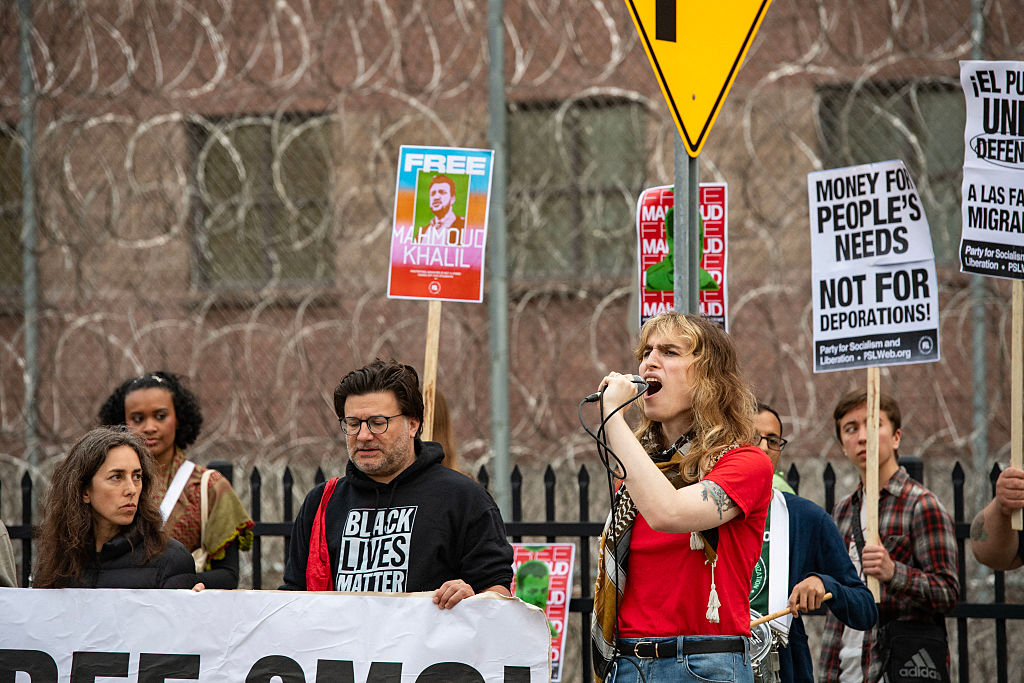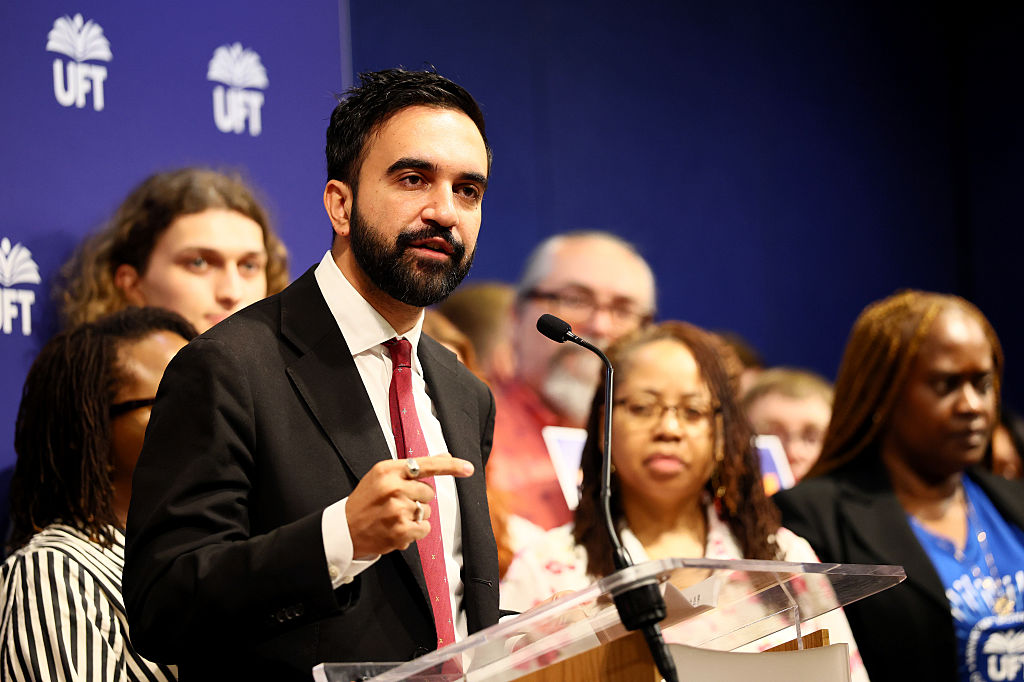Federal circuit judge Kyle Duncan surely knew in advance that he would face a tough crowd at Stanford Law School. The Federalist Society, which sponsored the March 9 event, was prepared for some trouble, since Duncan’s courtroom decisions render him anathema to the far left.
When students drowned him out with insults and obscenities, Duncan called for administrative aid. Associate dean of equity, diversity and inclusion Tirien Steinbach — who had evidently choreographed the protests — was ready for her close-up. She took to the lectern to declare, “For many people at the law school who work here, who study here, and who live here, your advocacy — your opinions from the bench — land as absolute disenfranchisement of their rights.”
Claiming she respected Duncan’s right to speak, Steinbach sided with the protesters. Amid her ramblings, she asked him, “Is the juice worth the squeeze?” — declaring his presentation not worth the pain he was causing the audience.
The Stanford activists offered no counterview and made no genuine effort at discourse. It was breaking, not making, as the lyrical dean might have put it, academic performance theater at its finest, right down to the stupid finger snapping. Since this incident, Duncan has been lionized on the right. The left says he was looking for a fight from the start.
Duncan’s judicial views on LGBT+ pronouns and same-sex marriage prompted the display. But the protesters were challenging far broader principles of civil opposition and free expression, qualities that should be inviolable at the bar.
When Stanford Law admits students, it takes into account their background and asks applicants to describe outlooks and career objectives. It can select from an extraordinary talent pool. Stanford has not admitted its militants by accident.
Some students end up doing entertainment or intellectual property law. Others want to be Chesa Boudins and Barbara Bankman-Frieds. They can’t wait for a life of courtroom activism and politics. This second group pursues lawfare, that is, the use of existing codes, legal machinery, and judicial power to transform or destroy established society, redistribute resources and prestige, and punish those who do not comply with their dicta.
Should we be surprised at such camera-ready outbursts? Think back to campus events and upheavals that were birthing woke a decade ago. Promises made during the 2014-2017 campus upheavals to skew admissions, decolonize the curriculum, hire non-white faculty and diversity officers, and assure that advanced degrees, jobs, titles, and funds would go to designated minorities have been fulfilled. Colleges and universities, museums, historical societies, and research libraries, some with endowments in the tens of billions, have executed expansive diversity plans that retool the liberal arts and professions through recrimination and defamation.
From Harvard College to the New York Times, highly credentialed academics and editorial writers demonstrate unconcealed excitement at the prospect of toppling America’s inherited traditions and cultural icons. For treasuries from the Massachusetts Historical Society to the Huntington Library, trying to go woke only exposes their crumbling integrity and lack of self-possession.
Does anyone remember Trigglypuff, a forerunner of the abusive Stanford-style protesters? At a 2016 University of Massachusetts campus event, Triggly shouted down Christina Hoff Sommers, then speaking on the nature of feminism. Her venom and appearance became an emblem style of unreason.
Once upon a time, that anger and need for attention might have been ignored, sublimated or medicated. But seven years later, in the non-binary age, Cora “Trigglypuff” Segal is a prize-winning graduate student and instructor in Gender and Women’s Studies at the University of Wisconsin. “As a scholar-activist of disability justice and racial capitalism, she is particularly interested in anti-capitalist, anti-state and abolitionist disability politics and resistance,” her bio reads.
Not one to miss a trick, Cora is currently into anti-fat issues and prison abolition. Prison abolition sounds like a put-on until you find out a recent Harvard Law Review issue devotes its lead article to the topic.
The daughter of a renowned Harvard classicist, Cora is no dope. Nor is she academically unconnected. She could be on her way to a tenure-track assistant professorship or diversity sinecure. Triggly’s advancement within a bogus scholarly discipline, claiming bogus disabilities and spouting gibberish, is worth noting. Do elected officials and taxpayers understand they are paying for hundreds or thousands of Trigglies — and their tenured mentors — to work the grievance spectrum in public institutions nationwide?
What’s the opportunity cost? The Trigglies and their patrons drive away critical, measured, introspective, and deliberate minds. Identity politics and novel pedagogies, while inspirational for some, ignore or despise the rudiments of scholarship, inquiry and contemplation.
Academe is not moving toward something more just or beautiful. Estranged from ability, the senior professoriate is committed to loyalty tests grounded in impossible premises and malicious fictions. Yet as members of a self-regulating guild, it can monitor and reward ideological obedience.
The problem is that once you get individuals thinking in terms of identity and self, it’s hard to get them to stop. Once you start up campus-based political projects, it’s hard to wind them down. Once you codify worldly rewards according to equity, race, gender, disability, and other such categories, you must fudge merit, redefine quality, or declare ascription, not learning or truth, an institutional primum mobile.
The decades-long academic flight from reality, substantive curricula, and respectful conduct is boiling over into the nation’s professional schools, notably the places where jurisprudence and civil society are defined and defended. This should be alarming. It’s no longer just Triggly and the zanies over in the gender studies department but the future’s top lawyers and jurists who are dancing to the antic tune.

























